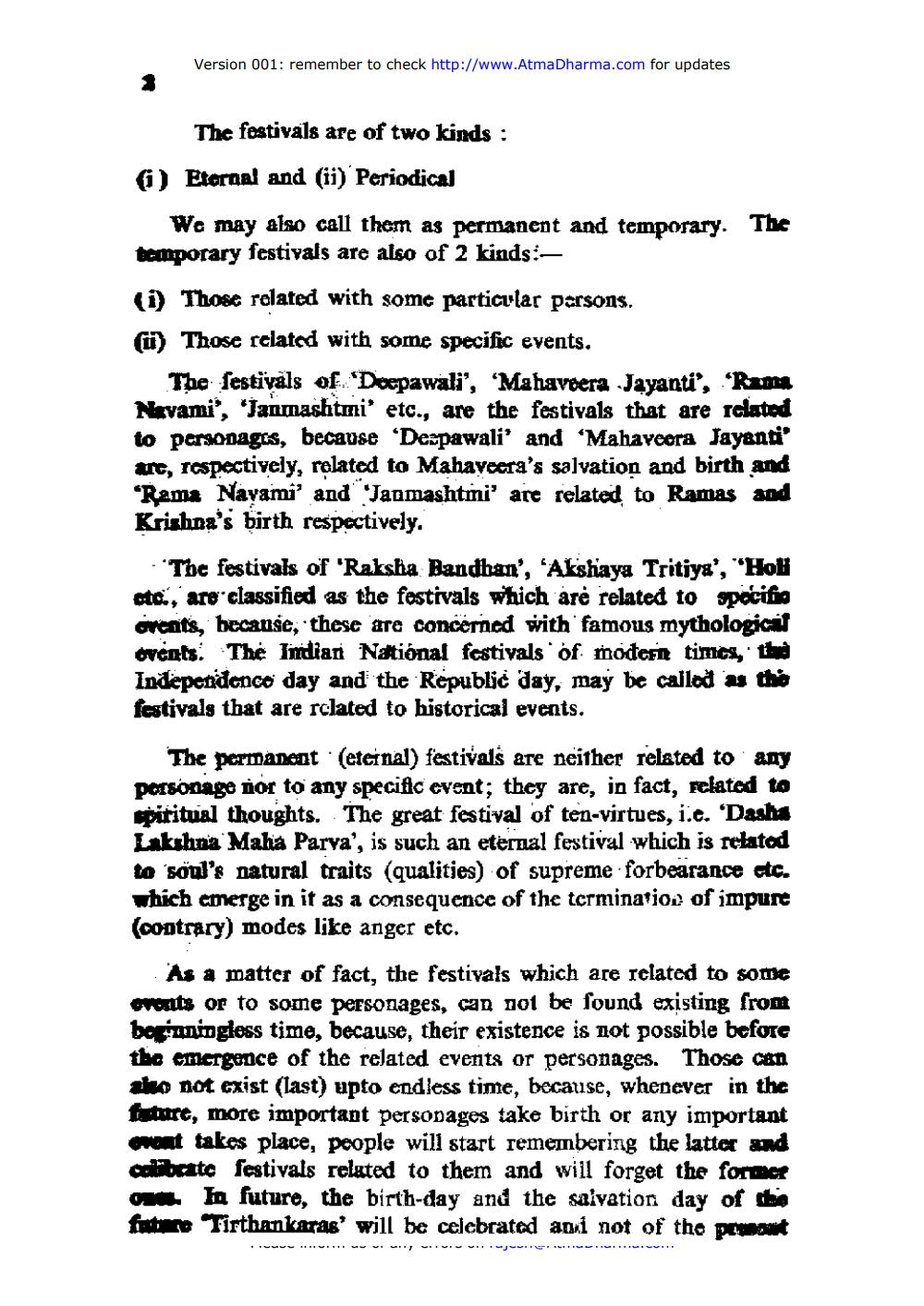________________
3
Version 001: remember to check http://www.Atma Dharma.com for updates
The festivals are of two kinds :
(i) Eternal and (ii) Periodical
We may also call them as permanent and temporary. The temporary festivals are also of 2 kinds:
(i) Those related with some particular persons.
(ii) Those related with some specific events.
The festivals of 'Deepawali', 'Mahaveera Jayanti', "Rama Navami, Janmashtmi' etc., are the festivals that are related to personages, because 'Deepawali' and 'Mahaveera Jayanti' are, respectively, related to Mahaveera's salvation and birth and ‘Rama Navami' and 'Janmashtmi' are related to Ramas and Krishna's birth respectively.
The festivals of 'Raksha Bandhan', 'Akshaya Tritiya", "Holl etc., are classified as the festivals which are related to specific events, because, these are concerned with famous mythological events. The Indian National festivals of modern times, thê Independence day and the Republic day, may be called as the festivals that are related to historical events.
The permanent (eternal) festivals are neither related to any personage nor to any specific event; they are, in fact, related to spiritual thoughts. The great festival of ten-virtues, i.e. 'Dasha Lakshna Maha Parva', is such an eternal festival which is related to soul's natural traits (qualities) of supreme forbearance etc. which emerge in it as a consequence of the termination of impure (contrary) modes like anger etc.
As a matter of fact, the festivals which are related to some events or to some personages, can not be found existing from beginningless time, because, their existence is not possible before the emergence of the related events or personages. Those can also not exist (last) upto endless time, because, whenever in the fature, more important personages take birth or any important event takes place, people will start remembering the latter and celibrate festivals related to them and will forget the former omes. In future, the birth-day and the salvation day of the fatere "Tirthankaras' will be celebrated and not of the present




